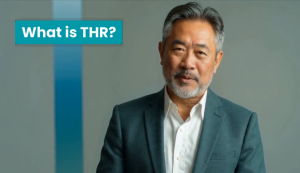CAPHRA exposes global public health policy failures

New report reveals systemic breaches of fundamental human rights obligations and calls for urgent reform of tobacco control strategies
The Coalition of Asia Pacific Tobacco Harm Reduction Advocates (CAPHRA) today released a comprehensive analysis entitled “The Right to Health and Public Health Policy,” (https://tinyurl.com/ctzcsjc6) which exposes critical failures in global public health systems and highlights the urgent need for policy reform grounded in human rights principles.
The report, authored by CAPHRA researchers C.Y. Virgino and N.E. Loucas, presents a damning assessment of how governments worldwide have systematically failed to uphold Article 25 of the Universal Declaration of Human Rights and Article 12 of the International Covenant on Economic, Social and Cultural Rights, which guarantee every individual’s right to the highest attainable standard of physical and mental well-being.
“Governments are demonstrating extraordinary hypocrisy in their approach to tobacco control,” said Nancy Loucas, co-author of the report. “They simultaneously tax tobacco products, creating reliance on tobacco revenue, whilst claiming to fight tobacco use. Meanwhile, safer nicotine alternatives that could reduce harm—such as vaping and nicotine pouches—are often overregulated or banned outright, whilst combustible cigarettes remain widely available. This directly contradicts both the spirit of harm reduction and governments’ obligations under Article 25 to reduce preventable illness.”
The analysis identifies how public health policy must encompass four core elements: availability of adequate healthcare facilities, accessibility without discrimination, cultural acceptability of services, and quality that meets scientific and medical standards. However, the reality falls far short of these requirements.
“We’re witnessing systemic failures across multiple fronts,” explained Clarisse Virgino, the report’s co-author. “Chronic underfunding of public health systems persists, with governments allocating disproportionately low budgets to preventive care despite clear evidence of cost-effectiveness. The COVID-19 pandemic exposed deep gaps in preparedness and equitable vaccine distribution, whilst many stakeholders promote ‘pay for play’ health policies that prioritise appearances over sustainable, inclusive policy development.”
Virgino emphasised that these policies frequently fail to address core public health issues effectively, instead serving to generate favourable public perception for benefactors whilst perpetuating systems that continue to contribute to harm.
The report concludes with a powerful call for reform, with both authors stressing that upholding the right to health represents both a legal obligation and moral imperative.
“Without genuine accountability, transparency, and a renewed focus on the core values of human rights and harm reduction, these failures will persist and exacerbate global health inequalities,” said Loucas.
“The challenge for governments and international bodies is to continuously align policies with this essential human rights framework. Upholding the right to health demands courageous, accountable leadership to dismantle systemic inequities and build a future where health is a guarantee, not a privilege.”
The report can be downloaded here: https://tinyurl.com/ctzcsjc6









